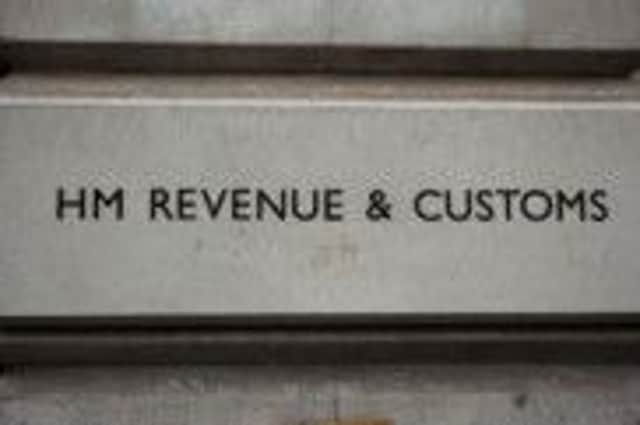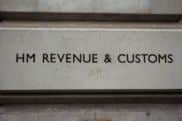Scottish independence: 10 years for tax system


The Scottish Government’s White Paper on independence sets out plans to create a distinct Scottish system, which it says would be “less cumbersome and less open to avoidance”, taking advantage of new technology.
Revenue Scotland, which is being set up to collect taxes devolved in the Scotland Act 2012, will form the foundations of the new system. The Government proposes a “transition phase” after independence where taxes will continue to be collected through existing HMRC systems, with the Scottish system collecting all taxes “as quickly as possible”.
Advertisement
Hide AdAdvertisement
Hide AdBut committee members were told that timescale could be an issue for the creation of the new system.


Elspeth Orcharton, director of taxation at the Institute of Chartered Accountants of Scotland, said it would take “three, if not four years” from the passing of the Scotland Act 2012 for the complete transfer of two of the simplest taxes, Land and Buildings Transaction Tax and the Scottish Landfill Tax.
The creation of a tax system which could cope with all taxes could require around 6,000 staff, she told MSPs.
“It’s not an easy change, and you are actually having to build a 6,000-person organisation that generates all your tax revenue from scratch, so you don’t want to rush it, but you need it in quickly.
“My ‘guesstimate’ is nearer 10 years than four. Maybe not quite 10, but somewhere in the middle,” she said.
Commenting on the costs of setting up the system, Ms Orcharton said: “I think the White Paper says a small proportion of annual revenue. Small at 1% would be £650 million, at 5% that would be £3 billion or so. I am not aware that there is a costing done, but I suspect there might be more than that broad brush approach.
“It depends how you look at cost. When for example East and West Germany reunified, they knew there was going to be a cost. They costed it and they introduced what was called a solidarity charge.
“The solidarity charge was an additional percentage tax on income and companies paid for a fixed number of years. It was upfront - you want constitutional change, this is what it will cost you.”
Advertisement
Hide AdAdvertisement
Hide AdShe added: “There will be substantial administrative efforts required and it will not be cheap.”
David Glen, partner and head of tax in Scotland at PricewaterhouseCoopers, said: “I guess it comes down to how much the Scottish Government would want to tinker with what is handed over.”
The devolution of taxes in the Scotland Act 2012 has taken longer than might have been expected, he said.
“The timescale could be an issue,” Mr Glen added.
The committee was taking evidence on taxation in an independent Scotland as part of its wider inquiry into Scotland’s economic future post-2014.
It also heard from Moira Kelly, chairman of the Scottish Technical Sub-Committee at the Chartered Institute of Taxation (CIOT).
The CIOT, which represents taxation professionals, said small and medium sized businesses might find dealing with a second separate tax system “frightening”.
“I think they will find this quite frightening, to think how do I handle my employees, how do I handle having to operate in another jurisdiction - the rest of the UK, and it may be that a lot of it is more psychological,” she said.
“Certainly there will be another burden on them in having to deal with a different jurisdiction, but it is the reality in practice as to how much (of an issue) that would be - I think maybe psychologically it’s more of an issue for them.”
Advertisement
Hide AdAdvertisement
Hide AdMs Kelly also raised concerns over plans to cut corporation tax by three percentage points in an independent Scotland.
“This could produce a ‘race to the bottom’ with the UK matching Scottish rates,” she said.
“Another concern is that it does not appear to tie in with other visions set out by the Scottish Government, such as building social cohesion, sustaining public services and joining up tax and welfare benefits policy.”
The Law Society of Scotland also gave evidence to the committee.
Its written submission addressed issues surrounding corporation tax.
It said: “If Scottish rates of tax were markedly lower than the rest of the UK, it raises the question of whether Scotland would be able to raise sufficient revenue to maintain adequate public services, including health, welfare and education services.
“Whereas if they were much higher, Scotland may no longer seem like a desirable place in which to live compared with other parts of the UK and businesses may be discouraged from investing in Scotland if the rates were viewed as anti-competitive.”
Further comment came from the Institute of Chartered Accountants of Scotland.
Advertisement
Hide AdAdvertisement
Hide AdIt said economic studies have suggested that “economic competitiveness or inward investment attractiveness” is about “much more than the tax rate”, and questioned whether a corporation tax cut was necessary.
“Inward investment decisions have a number of complex factors; for example the most attractive country in Europe for manufacturing inward investment was recently found to be Germany, whose corporate tax rate is over 30%,” it said.
“It seems that Scotland is successful at attracting inward investment already, so is a potentially expensive tax rate cut really necessary?”